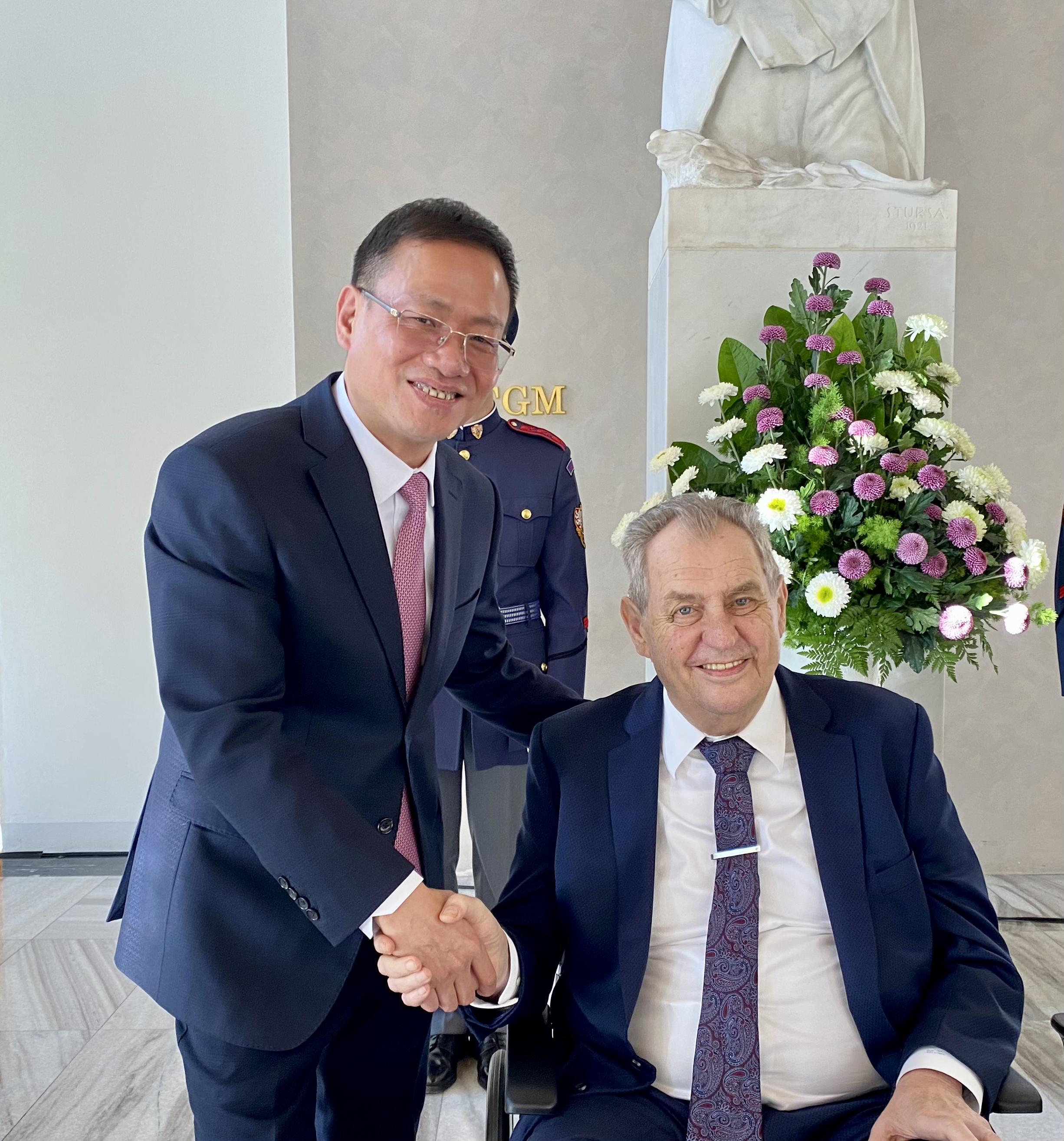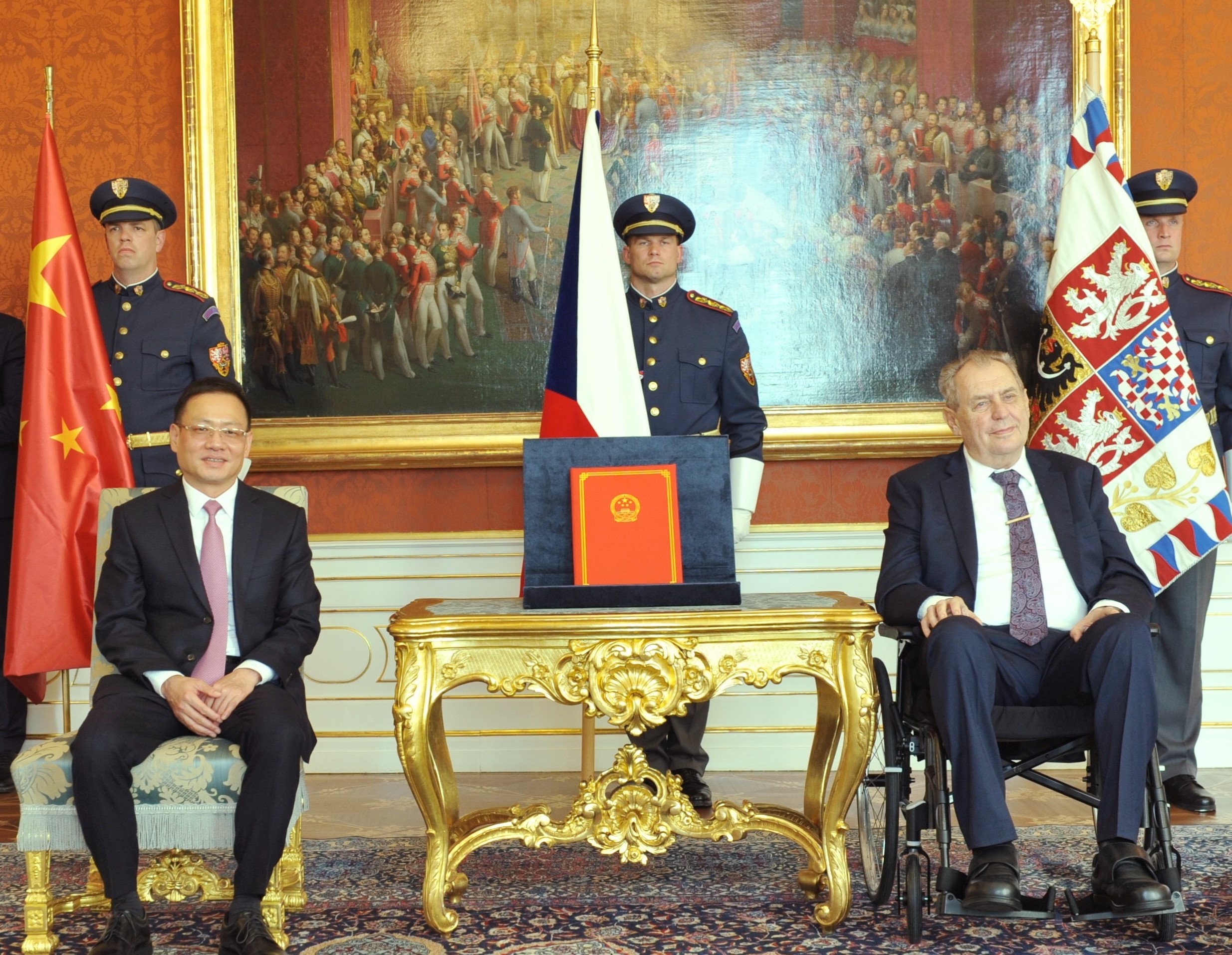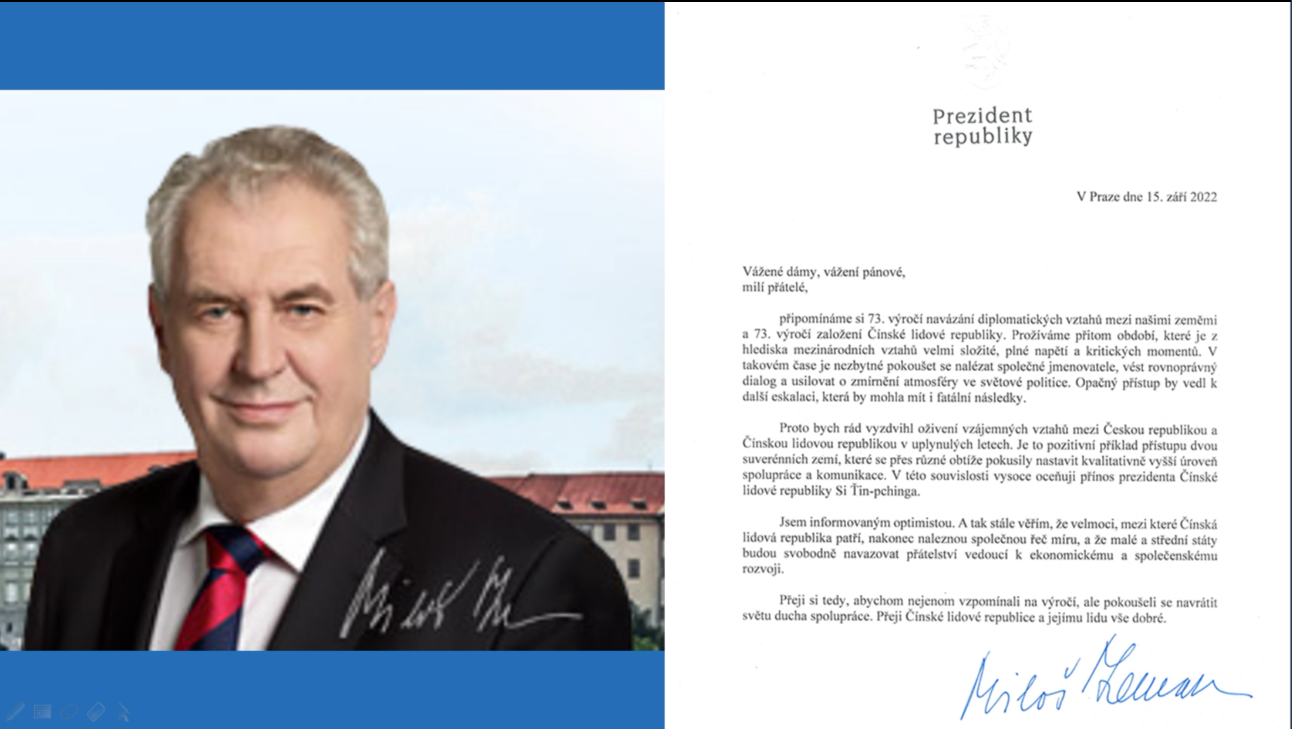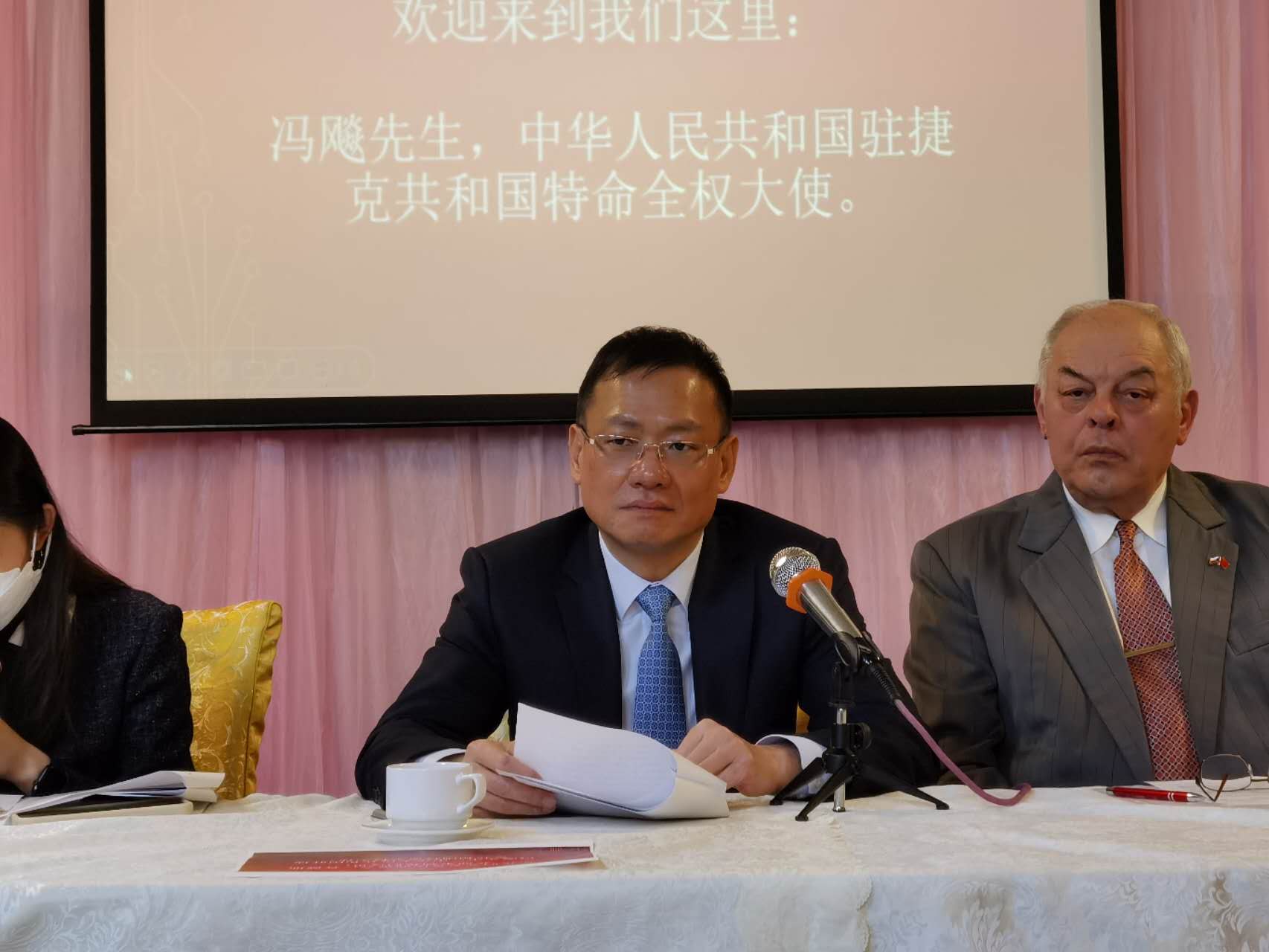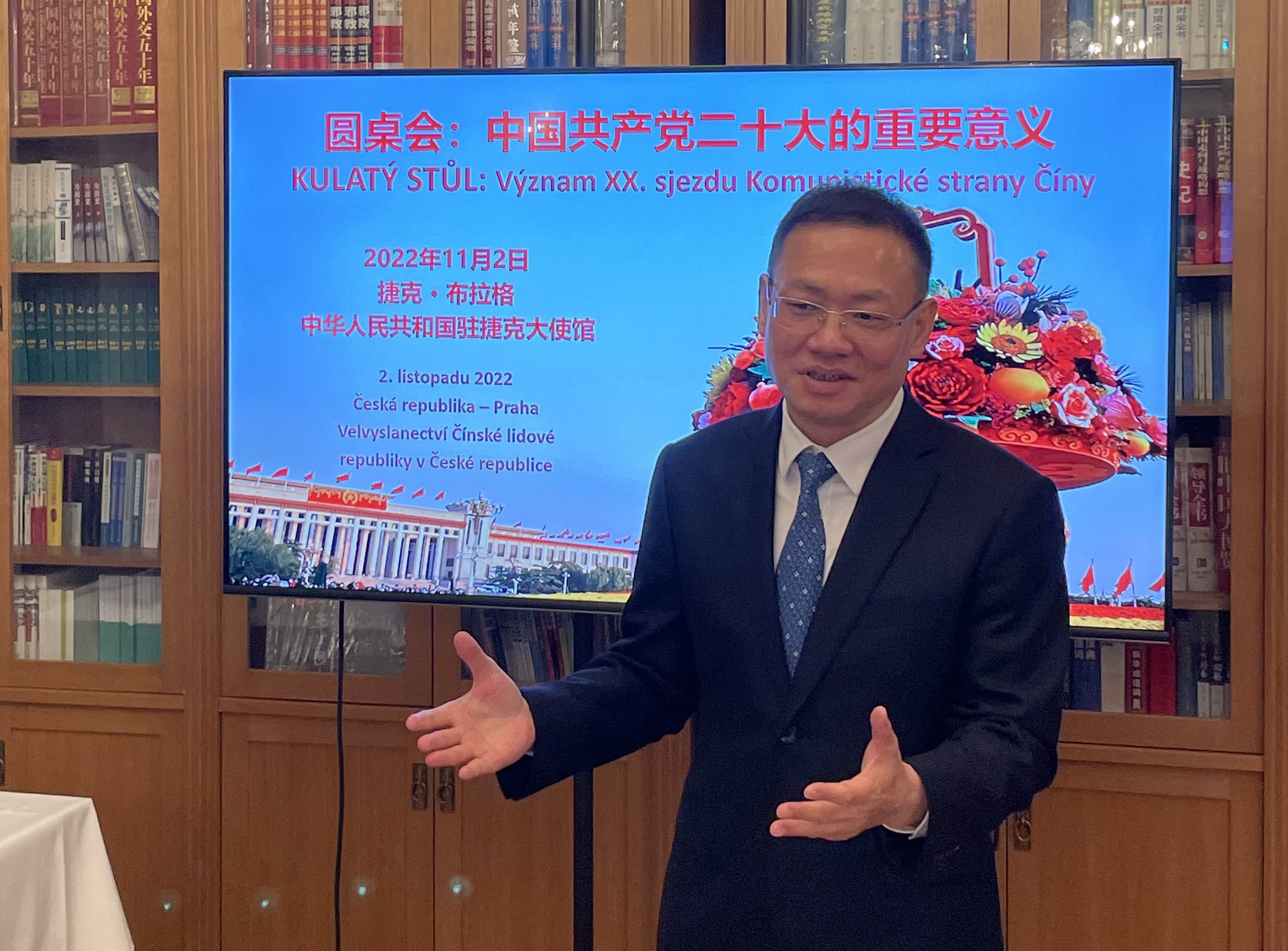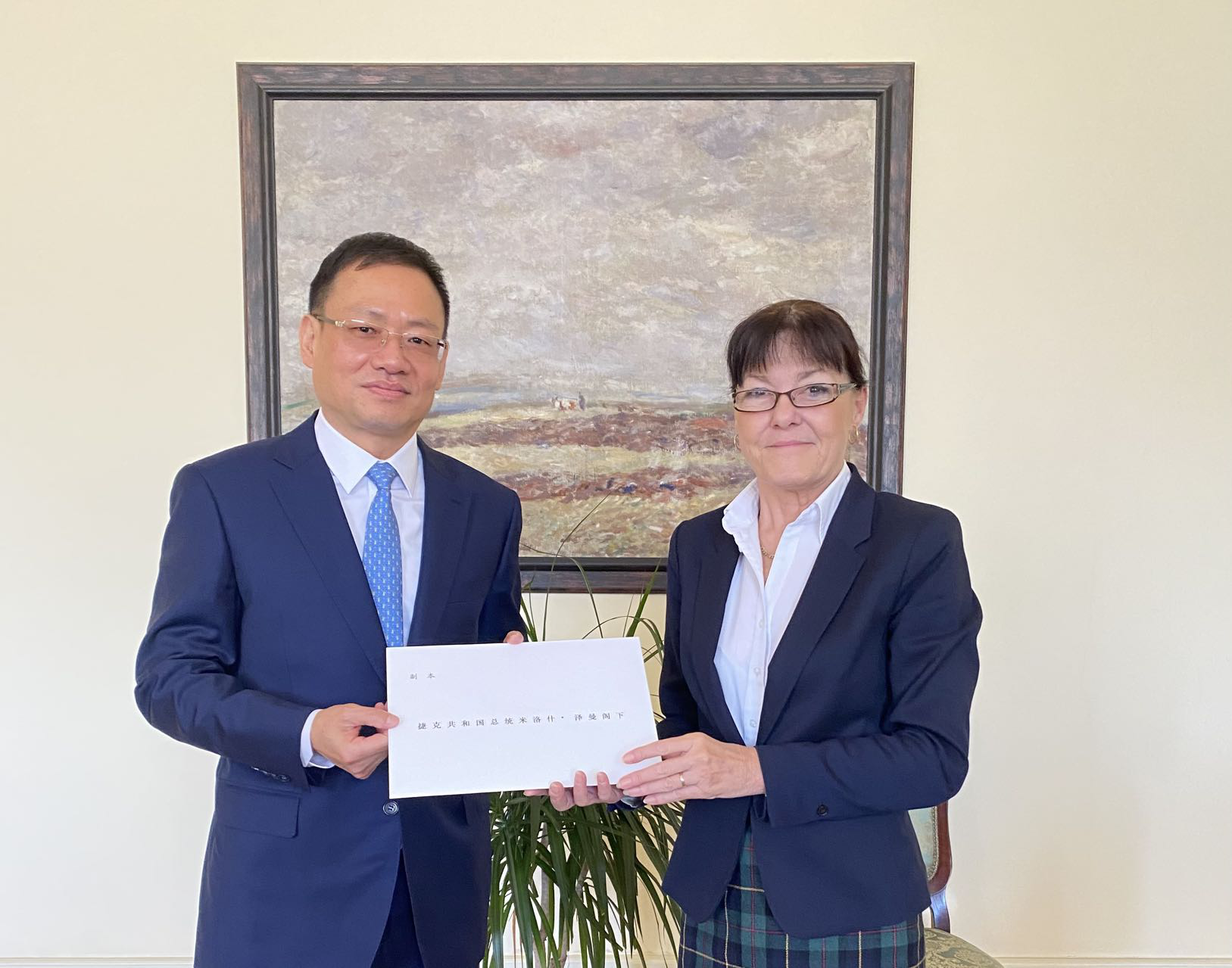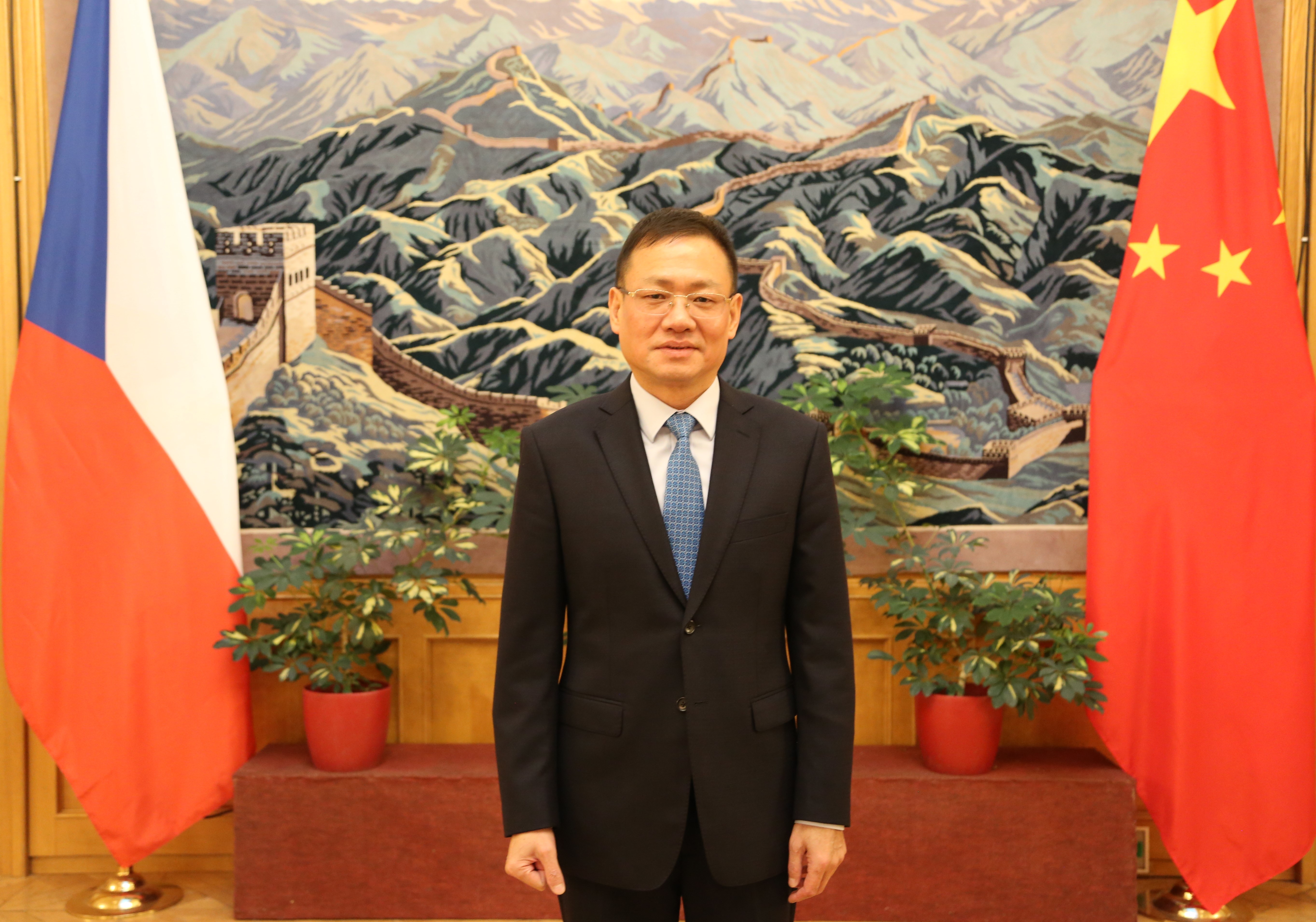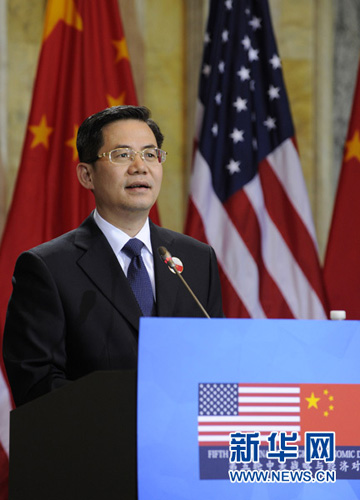| Striving to Build New Model of Major-Country Relationship between China and the United States |
| 2013-07-13 09:52 |
|
On July 11, 2013, Assistant Foreign Minister Zheng Zeguang held a briefing for Chinese and foreign media on the Strategic Track of the 5th Round of China-U.S. Strategic and Economic Dialogue (S&ED) and its outcomes when S&ED concluded. Zheng Zeguang said that from July 10 to 11, 2013, Yang Jiechi, special representative of President Xi Jinping and State Councillor, co-chaired the Strategic Track of the Fifth S&ED with John Kerry, special representative of President Barack Obama and Secretary of State (Deputy Secretary of State William J. Burns for the second day). The two sides held 4 small-scale sessions and one large-scale session for the dialogue. Focusing on implementing the consensus reached by the two heads of state at the Annenberg Retreat meeting on building a new model of major-country relationship between China and the United States, the two sides had a broad, in-depth and candid exchange of views on issues of strategic, overall and long-term significance. For the bilateral aspect, the two sides held in-depth discussions on building the new model of major-country relationship between China and the United States, planned for the next stage the high-level exchanges and dialogues and consultations of different levels between the two countries, and exchanged views seriously on actively expanding practical cooperation and effectively managing differences. For the regional aspect, the two sides conducted communication and coordination on China-US interaction in Asia Pacific, as well as regional hotspot issues, including Korean Peninsula situation, Middle East and South Asia. For the global aspect, the discussions covered the topics of addressing challenges of climate change, cyber security and others, as well as strengthening coordination and cooperation in the United Nations, the G20, APEC and other multilateral mechanisms. Under the framework of the Strategic Track, the relevant departments of the two countries held the third round of the Strategic Security Dialogue (SSD), the first meeting of the Cyber Working Group (CWG) and counterpart consultations on climate change, customs, combating illegal wildlife trafficking, UN peacekeeping, and South Asian and Latin American affairs. The Strategic Track delivered a concrete list of 91 outcomes. The two sides signed the EcoPartnership program and the counterpart departments of the two countries signed a number of agreements covering energy, customs and other areas. The Strategic Track was an in-depth, candid, practical, efficient and productive dialogue. It reflects the sincerity of the two sides to implement the consensus reached by the two heads of state at Annenberg Retreat meeting. It highlights that China and the U.S. share broad common interests and vast space for cooperation . The two sides believed that the meeting between President Xi Jinping and President Barack Obama at the Annenberg Retreat in June was very successful. Implementing the outcomes of the Presidents' meeting and promoting to build a new model of major-country relationship between China and the United States are critically important for both countries and the world as a whole. The two sides agreed to deepen practical cooperation, to well manage differences, to embody the spirit of non-conflict, non-confrontation, mutual respect, and win-win cooperation in their policies and actions. The two sides agreed to continue to maintain close high-level exchanges and dialogues and consultations at various levels. The two sides agreed to work closely on President Obama visiting China at an appropriate time for another special meeting between the two heads of state and the exchange of visits between the two heads of state at a possible early date. The two sides will well prepare the meetings between the two Presidents at G20 Summit in St. Petersburg and other multilateral occasions, will continue to run the S&ED, will set up a hotline between the Special Representatives of the Presidents, will join the efforts to push the 4th Annual US-China High-level Consultation on People-to-People Exchange to achieve positive results. The US side welcomes Foreign Minister Wang Yi to visit the United States at a proper time within the year. The two sides agreed on the continuing commitment to improving and developing the military-to-military relationship, and reaffirmed the exchange of visits of the defense ministers as scheduled. The two sides are willing to actively explore a notification mechanism for major military activities and to continue discussions on the rules of behavior on military air and maritime activities. The two sides agreed to actively expand practical cooperation in a wide range of areas of energy, environmental protection, science and technology, justice, ocean, customs, nuclear security, forestry, counter-terrorism, law enforcement, and cooperation at local levels. The two sides signed the memorandums of understanding or action plans on preventing illicit trafficking of nuclear and other radioactive materials, supply chain security, and joint customs training. Under the Strategic Track, the two sides held a special session on climate change for the first time. 4 Special Representatives listened to and approved the report presented by China-U.S. Climate Change Working Group. The two sides agreed with the cooperation initiatives put forward by the Working Group and agreed to continue to carry forward the agreement of the heads of state on hydrofluorocarbons. The two sides agreed to carry forward cooperation in 5 major areas of heavy-duty and other vehicles; smart grids; carbon capture, utilization, and storage; collecting and managing greenhouse gas data; and energy efficiency in buildings, industry and transportation, and to enhance dialogues on the multilateral climate change negotiation process as well as on domestic climate policies. The two sides held a signing ceremony for the EcoPartnership Program and admitted six pairs of new EcoPartnerships and announced six pilot eco-cities. The two sides also held a special session on energy security and had focused discussions on bilateral energy security issues. The two sides pledged to strengthen cooperation and increased exchange of information in several areas including stabilizing international energy markets, emergency responses, ensuring diversified energy supply, and a rational and efficient use of energy, and signed a few Memorandums of Understanding (MOUs) on enhancing energy regulation cooperation and energy training programs. The two sides acknowledged the great importance of the Asia-Pacific region to both countries. The United States reaffirmed that it welcomes a strong, prosperous, and successful China to play a greater role in global affairs. China welcomes the United States, as an Asia-Pacific country, to play a positive and constructive role in regional peace and prosperity. The two sides agreed to enhance exchange and coordination in the Asia-Pacific and decided to hold a new round of Asia-Pacific Consultations in autumn this year. They agreed to strengthen communication and coordination in the multilateral frameworks of the region, such as the East Asia Summit (EAS) and the ASEAN Regional Forum (ARF). China reiterated its principled position on issues including the South China Sea and East China Sea, stressed that China will firmly safeguard its sovereignty and maritime rights and interests, will be committed to well managing and settling down the disputes through direct dialogues with the countries concerned. China is as well a staunch upholder of navigation freedom and safety. China hopes that the United States will respect the facts, be consistent in words and actions and never do anything that may complicate the issues. The two sides exchanged views candidly on differences and a number of sensitive issues. China emphasized that both countries should respect each other's sovereign and territorial integrity, their own choice of social systems and development path, as well as their interests and differences. The Chinese side reaffirmed its principled position on the issues of Taiwan, Tibet and human rights and asked the US side to deal with related sensitive issues in a proper way. The US side said, though there exists competition between China and the United States, their relationship is not a zero-sum game. The United States is willing to address the differences in a constructive manner. The two sides decided to hold a new round of Human Rights Dialogue and Legal Experts Dialogue at an appropriate time. The two sides held in-depth discussions on the Korean Peninsula situation. The Chinese side reiterated to adhere to the denuclearization of the Korean Peninsula, to maintain peace and stability on the Peninsula and to seek solutions to the issue through dialogues and consultations. China called on all the parties concerned to seize the opportunity coming from the recent positive changes on the Peninsula and to work for an early resumption of talks and consultations on the issue. The two sides believed they share common goals on the Korean Peninsula nuclear issue and agreed to continue their close communication and coordination. The two sides had in-depth discussions on regional topics of Iranian nuclear issue and Syria. Both sides agreed that, with common interests in maintaining peace and stability in the Middle East, they should further step up coordination and cooperation. The two sides reaffirmed the commitment to seeking a comprehensive and long-term solution to the Iranian nuclear issue and taking active part in the P5+1 negotiations with Iran. The two sides stated their shared commitment to preparing for the Geneva Conference on Syria and to trying to resolve the crisis through political means. The two sides agreed to strengthen communication on the Palestine-Israel issue to push forward the peace process in the Middle East for progress at an early date. The two sides agreed that maintaining political stability and achieving economic recovery in Afghanistan is in the common interest of China and the United States as well as other countries in the region. Both sides decided to expand coordination in advance of the 2014 drawdown of US troops from Afghanistan and continue to work together in support of regional cooperation efforts such as the Istanbul Process. The United States welcomed China's decision to host the 2014 ministerial meeting of the Istanbul Process. Fully mindful of the importance of Pakistan to regional security, the two sides decided to keep communication on helping Pakistan to maintain stability and combat extremist forces. The two sides agreed to make joint efforts for continuing ease of tension between Sudan and South Sudan. The two sides agreed that, as permanent members of the UN Security Council, to continue to be committed to maintaining world peace and stability; as major economies of the world, to further support each other in the mechanism of G-20; to work with other economies to promote robust, sustainable and balanced development of the world economy, and turn the G-20 into the premier platform for global economic governance. The two sides agreed to work for practical results in APEC Informal Economic Leaders' Meeting in Bali this year. The US side announced its support for China hosting the 2014 APEC Informal Economic Leaders' Meeting as well as related ministerial meetings. China and the United States held the third round of the Strategic Security Dialogue (SSD) under the framework of the Strategic Track, which was co-chaired by Chinese Vice Foreign Minister Zhang Yesui and US Deputy Secretary of State William J. Burns, with Deputy Chief of the PLA General Staff Lieutenant General Wang Guanzhong, US Under Secretary of Defense for Policy James Miller, and others present. The two sides had a candid, in-depth and constructive exchange of views in the dialogue on major issues of strategic security and comprehensive security in the bilateral relations. The two sides spoke positively of the growing importance of the SSD in the bilateral relations, decided to maintain active and in-depth dialogue on relevant issues, to establish a stable and cooperative strategic security relationship between the two countries. The two sides agreed to hold an informal meeting in advance of the fourth round of SSD. China and the United States acknowledged that, as major countries in the cyber world, both are confronted with cyber security challenges and that building a peaceful, safe, open and cooperative cyber space is beneficial for both China and the United States, while also serves the common interests of the international community. The two sides reaffirmed their commitment to enhancing dialogue and conducting cooperation on cyber issues. The two sides held the first Cyber Working Group meeting under the framework of the SSD, agreed to work together to actively implement the relevant guidance and suggestions raised by the two Presidents at the Annenberg Retreat meeting, and had a candid and in-depth exchange of views on issues of institutional building of the Cyber Working Group, bilateral cyber relations and international norms and principles on cyber space. The two sides also came up with a number of advocates for cooperation and agreed to hold another Cyber Working Group meeting within this year. |
|
||||||||||||||||
| ||||||||||||||||
|
|
||||||||||||||||

